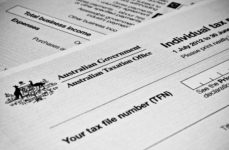Tax Office Attacks Client Legal Privilege

During his speech at the Law Society’s 2016 Opening of Term Dinner, NSW Chief Justice Tom Bathurst made clear he had identified 397 state laws that encroach upon three fundamental legal protections alone – the presumption of innocence, the right against self-incrimination and client legal privilege. He called this a “conservative estimate”.
The Chief Justice expressed concerns about the systematic withering away of freedoms and safeguards in our state, calling upon lawyers to fight for human rights.
Now, the Australian Taxation Office (ATO) has called for further exceptions to client legal privilege to make it easier for them to prosecute those it suspects of tax evasion.
The ATO is working with the Law Council of Australia on laws that would force lawyers to disclose financial information about their clients, including where documents were provided to the lawyer for the purpose of obtaining legal advice.
What is client legal privilege?
Client legal privilege protects confidential communications between clients and their lawyers, the dominant purpose of which is to obtain legal advice or seek legal representation.
The rationale is that clients must be free to provide full instructions to their lawyers for advice, without fearing that the information will be disclosed to others.
Across Australia, the general proposition is that:
- As to privilege relating to advice:
“In civil and criminal cases, confidential communications passing between a client and a legal adviser need not be given in evidence or otherwise disclosed by the client and, without the client’s consent, may not be given in evidence or otherwise disclosed by the legal adviser if made either:
(1) to enable the client to obtain, or the adviser to give legal advice, or assistance, or
(2) with reference to litigation that is actually taking place or was in the contemplation or anticipation of the client.”
- As to privilege relating to documents:
“Documents prepared by or communications passing between the legal adviser or client and third parties need not be given in evidence or otherwise disclosed by the client and, without the consent of the client, may not be given in evidence or otherwise disclosed by the legal adviser if they come within (2) above”. J D Heydon, Cross on Evidence.
The elements
Client legal privilege is therefore said to arise where:
- A professional relationship exists between a lawyer and client,
- That relationship involves confidential communications, and
- The communications are for the dominant purpose of legal advice.
Professional Relationship
This element can be established through evidence of an agreement (such as a cost agreement), of a formal conference (such as an office meeting or telephone conference) or even through circumstances where it can be inferred that the party asserting privilege (the client) could reasonably expect that a professional relationship had arisen.
Confidentiality
Section 117(1) of the Evidence Acts 1995 (NSW) defines ‘confidential communication’ as one where the person who made it, or the person to whom it was made, was under an express or implied obligation when it was made not to disclose its contents.
The section similarly defines a ‘confidential document’ as one which was prepared in circumstances that, when it was prepared, the person who prepared it, or the person for whom it was prepared was under an express or implied obligation not to disclose its contents.
In the context of the admissibility of legal advice in the courtroom, section 118 of the Evidence Act provides that:
Evidence is not to be adduced if, on objection by a client, the court finds that adducing the evidence would result in disclosure of:
- A confidential communication made between the client and a lawyer; or
- A confidential communication made between 2 or more lawyers acting for the client; or
- The contents of a confidential document (whether delivered or not) prepared by the client, lawyer or another person
for the dominant purpose of the lawyer, or one or more of the lawyers, providing legal advice to the client.
Section 119 substantially reproduces the above as it relates to confidential documents prepared for actual or anticipated legal proceedings in Australia or anywhere else in the world.
Dominant purpose test
Sections 118 and 119 signalled a key shift from the ‘sole purpose’ test to test ‘dominant purpose’ test.
Until the enactment of the Evidence Act in 1995, communications were only protected if made for the sole purpose of contemplated or pending litigation, or for obtaining or giving legal advice.
The High Court of Australia formally confirmed the dominant purpose test in the 1999 case of Esso Australia Resources Ltd v Commissioner of Taxation.
However, it is important to bear in mind that not every communications between a lawyer and his or her client attracts client legal privilege; only those which mainly relate legal affairs.
Loss of privilege during court proceedings
Sections 121 to 126 of the Evidence Act outline situations client legal privilege does not apply to the admissibility of evidence in court proceedings. These include:
121 – Where the client has died or where disclosure is necessary to enforce a court order,
122 – Where the client waives privilege, or consents to the lawyer disclosing information or producing materials, or where the client acts in a manner inconsistent with maintaining the privilege (eg discloses to others),
123 – Where a defendant is giving evidence in criminal proceedings, unless it is a a confidential communication or document between an associated defendant and a lawyer acting for that person in connection with the prosecution of that person.
124 – Where two or more clients have jointly retained a lawyer in civil proceeding and one or more of them wishes to disclose a confidential communication or contents of a confidential document,
125 – Where a communication is made or document prepared in furtherance of a fraud, an offence or an act which would render a party liable for a civil penalty, and
126 – Certain information necessary to understand material to which privilege does not apply as a result of the preceding sections.
The ATO wants further exceptions
The ATO says one in five major audits currently being conducted by the Tax Office are being complicated by blanket claims of legal privilege, which in some cases means that tens of thousands of documents are being withheld from the ATO.
The office is now working with the Law Council to give it greater access to financial information, and a new bill which provides exceptions to client legal privilege to facilitate this could be introduced as early as next month.
Such laws could stifle the ability of clients to freely and openly seek legal advice in respect of financial matters, without fearing that the information they provide will be used against them.
The case of Swiss company Glencore
Last year, the Law Council backed multinational commodities trader Glencore, which owns Mount Isa Mines and Ernest Henry Mining, in its fight against the ATO over the release of the Paradise Papers.
In its investigations of Glencore, the ATO used 11.5 million documents that detailed financial and attorney–client information for more than 214,488 offshore entities. The documents were leaked from a Panamanian law firm and included emails, board briefings, plans and presentations, detailing how Glencore moved $30 billion worth of resource projects out of the Australian tax net after a $16 billion write down.
In the 2014 restructure, Glencore moved significant assets from its Australian investment portfolio into offshore structures, absorbing debt into these other entities, and the directors wrote down the value of the chief holding company here to zero, significantly affecting the tax obligation. While the move is legal (companies usually defend such “cross-currency swaps” to guard against currency value fluctuations), it is under review by the ATO.
Glencore took its fight to protect the documents to the High Court, in an effort to force the ATO to return its copies of the legal files, claiming that lawyer-client confidentiality should prevent the tax office from using documents prepared for or marked as legal advice.
The ATO has been in crackdown mode for some time. It has introduced a range of new penalties and regulations to clamp down on tax evasion of all kinds.
Crackdown on tax fraud and avoidance
Data released in December 2018 showed that one-third of large Australian companies paid no tax, and while the ATO justified this at the time, saying they had legitimate reason, it is insulting to the vast majority of Australian individual and small business taxpayers who, year upon year, feel like they pay more than their own fair share.
Large corporations and multinationals on the other hand, have big budgets to pay for expert tax and legal advice which sees them accessing all manner of loopholes to minimise their tax obligations.
However, the introduction of tough multinational anti-avoidance laws in late 2016, signalled a new era of change, with the ATO taking a much tougher stance on wealthy individuals and multi-national companies. The ATO estimates that the new laws have meant it has claimed an extra $7.7bn in tax revenue over the past two years.
This year, in the budget, the Federal Government provided an extra $1 Billion of funding to the ATO to give it more resources. A special ATO taskforce has been charged with scrutinising the top 1000 corporations in Australia, along with 320 private groups and wealthy individuals.
Tax evasion offences in Australia
The payment of taxation is primarily regulated by the Excise Act 1901, Taxation Administration Act 1953 and Criminal Code Act 1995 – all of which are Commonwealth laws which apply across Australia.
The main offences for prosecuting tax fraud, also known as tax evasion, are contained in sections 134.1(1), 134.2(1) and 135.4(3) of the Criminal Code Act (the Act), all of which carry maximum penalties of 10 years in prison.
Section 134.1(1) is headed ‘Obtaining property by deception’ and stipulates that a person is guilty of this offence if:
- the person, by a deception, dishonestly obtained property belonging to another with the intention of permanently depriving the other of the property, and
- the property belonged to a Commonwealth entity.
To establish the offence, the prosecution is therefore required to prove each of the following ‘elements’ beyond a reasonable doubt:
- The defendant acted dishonestly, and
- Engaged in a deceptive act, which
- Resulted him or her obtaining property, such as funds or assets,
- That property belonged to a Commonwealth entity, and
- The defendant intended to permanently deprive the owner of the property.
The defendant is not guilty if the prosecution is unable to prove all of those elements.
Section 134.2(1) of the Act is titled ‘Obtaining financial advantage by deception’ and provides that a person is guilty of this offence if:
- the person, by a deception, dishonestly obtained a financial advantage from another person, and
- the other person was a Commonwealth entity.
Section 135.4(3) is headed ‘Conspiracy to defraud’ and states that a person is guilty of this offence if:
- the person conspired with another person with the intention of dishonestly causing a loss to a third person, and
- the third person was a Commonwealth entity.
Subsection 135.4(4) makes clear that to be convicted of the offence, it is not necessary for the prosecution to prove that the defendant knew the third person was a Commonwealth entity.
Alternative offence
An alternative to the above offences is contained in section 135.2(1) of the Act, which is titled ‘Obtaining financial advantage’ and carries a much lower maximum penalty – 12 months rather than 10 years in.
A person is guilty of obtaining a financial advantage if the prosecution can prove beyond reasonable doubt that:
- the person engaged in conduct as a result of which he or she obtained a financial advantage for himself or herself from another person,
- the person knew or believed he or she was not eligible to receive that financial advantage, and
- the other person was a Commonwealth entity.
Where the prosecution case for tax fraud appears to be strong, a defence lawyer may be able to have an offence which attracts a maximum penalty of 10 years in prison withdrawn and replaced by this less-serious offence.
Suspected of tax evasion?
If you have been accused of evading tax, call Sydney Criminal Lawyers anytime on (02) 9261 8881 to arrange a conference with an experienced defence lawyer who will be able to advise you about how the law applies to your particular situation, your options and the best way forward.
A good criminal defence lawyer may be able to persuade the Australian Taxation Office or the Commonwealth Office of the Director of Public Prosecutions not to commence proceedings in the first place, or have them withdrawn for insufficient evidence or downgraded if charges are brought, or dismissed if the case proceeds to a court hearing.








